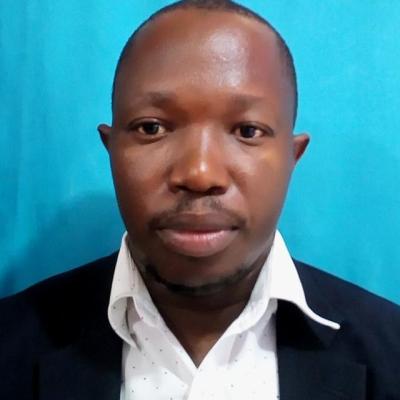
Changoma Marko Fransis
Biography
Mr. Changoma is an Assistant Lecturer in Fisheries Science at the University of Dar es Salaam, Tanzania, and a current PhD researcher specialising in Fish Stock Assessment and Fisheries Management at Hokkaido University, Japan. He holds a Master of Fisheries Science from Pukyong National University in South Korea and a Bachelor’s degree in Fisheries and Aquaculture from the University of Dar es Salaam. Mr. Changoma is a recipient of the prestigious HEET scholarship for PhD studies and an award-winning KOICA scholar. During his time in South Korea, he earned recognition through awards for best oral presentation and best action plan. At the University of Dar es Salaam, he has held several administrative roles, including Coordinator of Undergraduate Studies, Entrepreneurship and innovation, and Assistant Coordinator for Research, Consultancy, and Publications at the School of Aquatic Sciences and Fisheries Technology (SoAF). He has also served as a school representative on the University of Dar es Salaam Academic Staff Association (UDASA) Executive Committee, the Deep Sea Fishing Authority (DSFA) Research Committee, and various school boards and curriculum review panels. He was also appointed Chairperson of the UDASA Club. Beyond the university, Mr. Changoma has held leadership positions such as Treasurer of the Association of Tanzanian Students in Japan (TSJ) serving two consecutive terms, and he has been an active executive committee member of TSJ. His public sector roles include Acting Head of the Department of Livestock and Fisheries at Mtwara District Council and serving as a Fisheries Officer in Mtwara district. His teaching portfolio includes undergraduate courses in introduction to fisheries science, fish population dynamics, stock assessment, and aquatic ecology. He has successfully supervised numerous undergraduate research projects. Mr. Changoma has been involved in various national and regional research and consultancy projects. These include the Julius Nyerere Hydro Power Project (JNHPP) on migratory fish study (under SoAF), the review of management plans for pelagic fisheries in mainland Tanzania (under SoAF), and the WIO-COR feasibility study on the contribution of seagrasses to blue economy resilience. His responsibilities have spanned proposal writing, methodological design, data analysis, and report preparation. He has published work on fish waste reutilisation in high-impact journals and currently has additional manuscripts under review in internationally respected journals focusing on fish stock assessment and fisheries management. Mr. Changoma is highly proficient in R and has a strong foundation in data analysis, statistical modelling, visualisation, and predictive modelling. His technical expertise includes stock assessment of fisheries resources using length-based and catch-based methods (e.g., ELEFAN, LIME, LBSPR, LBI, Catch-MSY, CMSY, DB-RSA, and SSS), as well as bioconversion and recovery of bioactive compounds for green and sustainable biological waste management.
Research Interest
Fish Population Dynamics and Stock Assessment
Fisheries management
Fisheries-based Waste Treatment, Bioconversion and recovery of bioactive compounds
Contacts
Email:
Projects
Population Genetic structure and gene flow of the mud creeper Telebralia palustris (Linnaeus, 1967) in Tanzania. Duration: November: 2020 to 2021. Funded by the University of Dar es Salaam. In this project I participated in sampling methods design, field sampling and report writing.
Nutritional and Nutraceutical Profiling of Low-Value Fish Species for Enhancement of Food and Health Security in Tanzania. Duration: 2022 to 2023. Funded by the University of Dar es Salaam.
Assessment of Growth Performance of Pompano (Trachinotus blochii) fingerlings fed with bio-activated blood meal protein. Duration: 2021 to 2022. Funded by WIOMSA, MARFG I.
Waste Drive Project - Development of a fiber composite reinforced electric scooter based on high-performance natural fibers from agricultural waste products. Duration: 2021 to 2024. Funded by the Federal Ministry of Education and Research (BMBF) and the German Academic Exchange Service (DAAD).
Publications
Changoma F. M, Jung H.Y., Kim J.K, 2020. Recovery of antioxidant and antimicrobial peptides through the reutilization of Nile perch wastewater by biodegradation using two Bacillus species. Chemosphere,253, (2020),126728, doi./10.1016/j.chemosphere.
Robust ELEFAN estimation of growth curve parameters and biological reference points using medians (under review)



